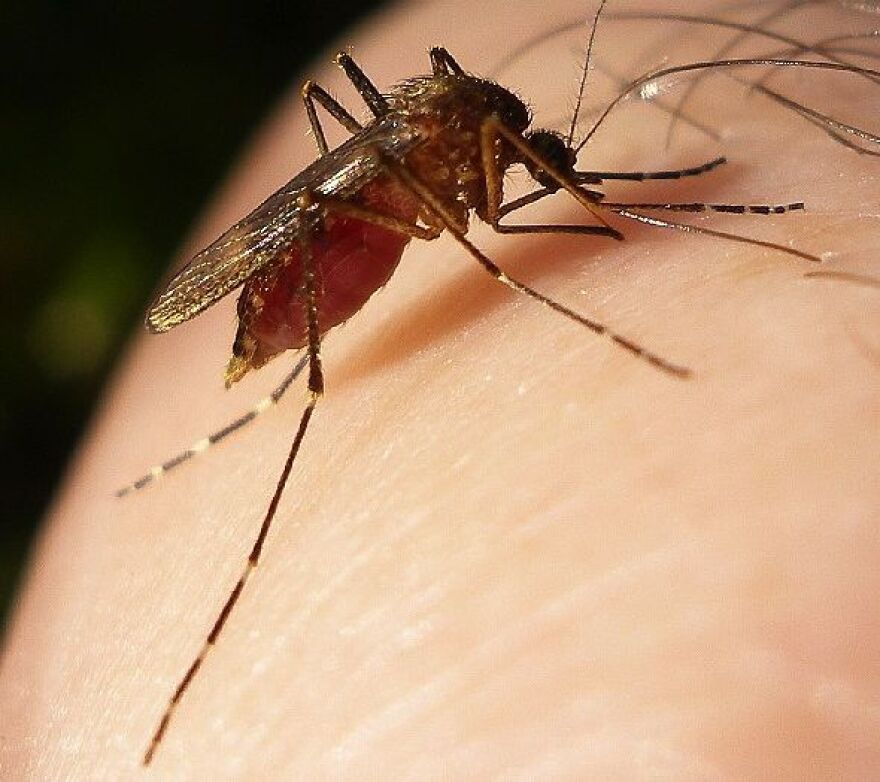After an unprecedented outbreak of West Nile virus in Texas last year, the state has seen half of the reported cases compared to this time last year.
But, despite the decrease, the Department of State Health Services says environmental factors and the disease's unpredictability don't necessarily guarantee a safe summer for Texans.
Only two cases of West Nile in humans have been confirmed in the state this year, and five counties have reported mosquitos that tested positive for the virus. At this time last year, there were four confirmed human cases and 10 counties reporting infected mosquitos.
By the end of 2012, Texas saw 1,868 human infections and 89 deaths resulting from West Nile as compared with only two deaths in 2011. Christine Mann, a spokesperson for the Department of State Health Services, says it is difficult to identify why the number of infections was so grave last year.
“It could be a myriad of factors such as the warm weather, the warmer winter, or more birds being infected with West Nile and concentrated in certain areas of Texas,” Mann said.
The peak season for West Nile runs from spring until the first hard freeze of the winter, and Mann said it’s hard to predict which areas could be the hardest-hit this year.
“It’s really early in the season, and infectious diseases are very unpredictable,” Mann says. “We won’t know if this will be a particularly bad year, but we certainly hope not.”
While 80 percent of people infected with West Nile do not exhibit any symptoms and heal on their own, about 20 percent suffer from flu-like symptoms. The body aches and fever tend to last several weeks. Less than one percent of infected individuals develop the more serious West Nile neuroinvasive disease, which can lead to convulsions, paralysis and even comas.
Many Texans were unaware of West Nile when it first appeared in the state in 2002, Mann says. Since then, state authorities have worked to spread knowledge of preventative measures to stop the virus from spreading.
When venturing outdoors, Mann recommends using an insect repellent containing DEET, picaridin or oil of lemon eucalyptus and covering up with long sleeves and pants at dawn and dusk when mosquitoes are most active. It’s also important to regularly drain any standing water, which provides an ideal environment for mosquitos to breed in.
“Taking the right precautions means there will be less mosquitos breeding in your backyard,” Mann says.




